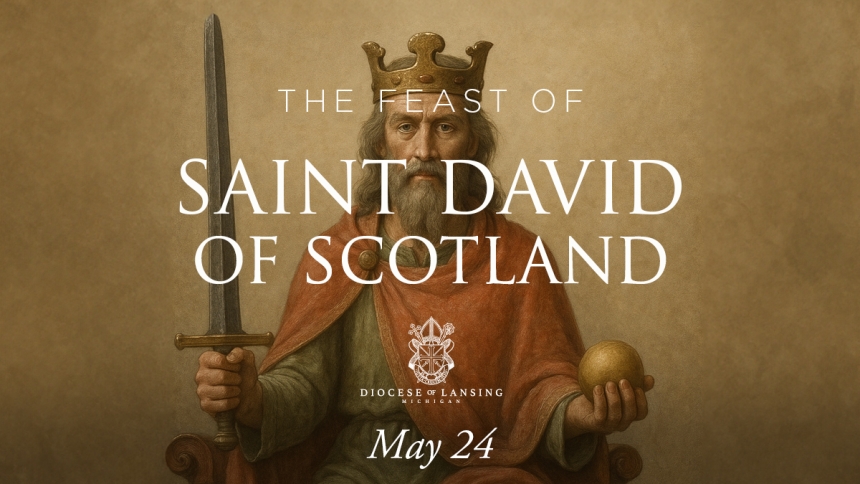
You may have heard of Saint David of Wales, the 6th century bishop. But do you know about Saint David of Scotland, the 12th century king, whose feast day is today? No? Read on.
“As the sixth and youngest son of Saint Margaret and King Malcolm III, it seemed highly unlikely that David would ever become King of Scots but in 1124 that’s exactly what happened and with such a dramatic, positive, and saintly impact that this period in Scottish history has become known as the ‘Davidian revolution’,” explains David Kerr, Director of Communications for the Diocese of Lansing, who is also a native of Scotland, May 24.
During his 29-year reign, King David oversaw the continuing development of the Scottish state and the organization of Christianity within it. He founded bishoprics at Brechin, Dunblane, Caithness, Ross, and Aberdeen. He also endowed monasteries and welcomed into Scotland various non-native religious orders: Augustinian Canons to Holyrood in Edinburgh; Cistercians to Melrose in Roxburghshire; and Benedictines to Dunfermline in Fife.
When his wife, Queen Matilda died in 1130, David gave himself over more readily to the pursuit of personal holiness. He was known to recite the Divine Office himself each day and give alms to those in need.
“David’s life and reign tell us, at least, three important things,” adds David Kerr, “First, that the witness of a saintly mother or father can have profound effect upon children; Second, as a Universal Church we should welcome the missionary assistance of Catholics from other lands; Third, that saints are made not born, and that personal holiness is a daily and, indeed, lifelong pursuit.”
David himself died in 1153 and was buried at Dunfermline, where his saintly cult continued until the 16th century Scottish Reformation. Saint David of Scotland, pray for us!
